Publications
Articles, publications, books, tools and multimedia features from the U.S. Institute of Peace provide the latest news, analysis, research findings, practitioner guides and reports, all related to the conflict zones and issues that are at the center of the Institute’s work to prevent and reduce violent conflict.
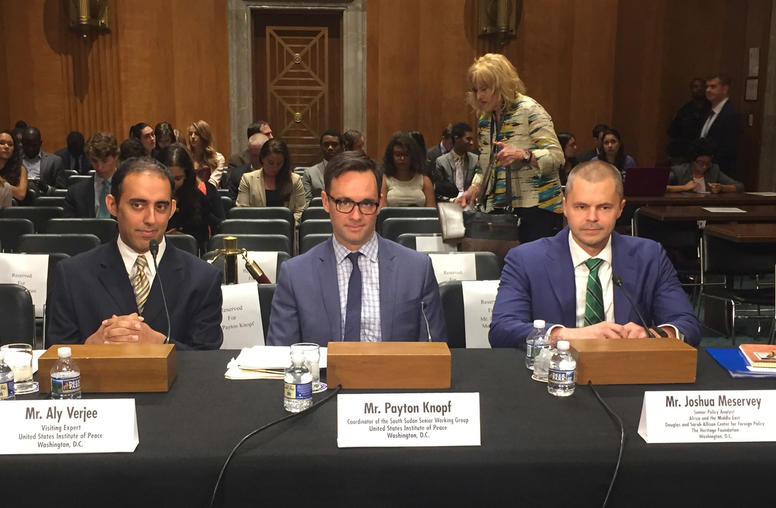
South Sudan’s Conflict and Famine: Aly Verjee Testimony
Aly Verjee provided testimony on South Sudan’s conflict and famine before the Senate Foreign Relations Subcommittee on Africa and Global Health Policy.

South Sudan’s Conflict and Famine: Payton Knopf Testimony
Payton Knopf provided testimony on South Sudan’s conflict and famine before the Senate Foreign Relations Subcommittee on Africa and Global Health Policy.
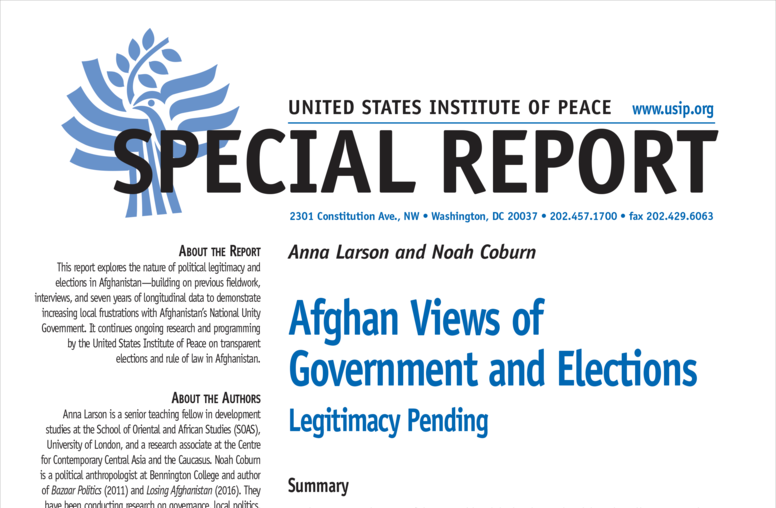
Afghan Views of Government and Elections: Legitimacy Pending
Drawing on fieldwork and interviews, this report explores the nature of political legitimacy and elections in Afghanistan in the context of instability and economic decline with an eye to the long-term future of democracy in the country.
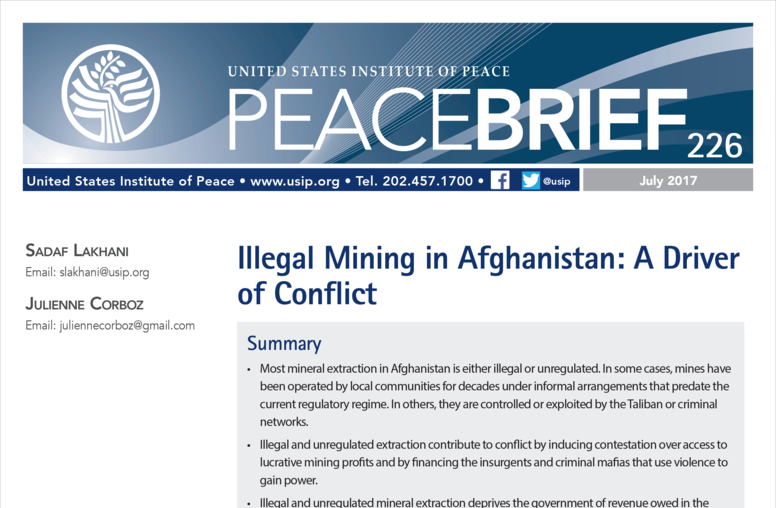
Illegal Extraction of Minerals as a Driver of Conflict in Afghanistan
Based on qualitative surveys and focus group discussions with communities in four Afghan provinces, this Peace Brief analyzes how nonstate actor control over small-scale mining sites and illegal extraction contributes to conflict, the local political economy, and the incentive structures that support illegal extraction.
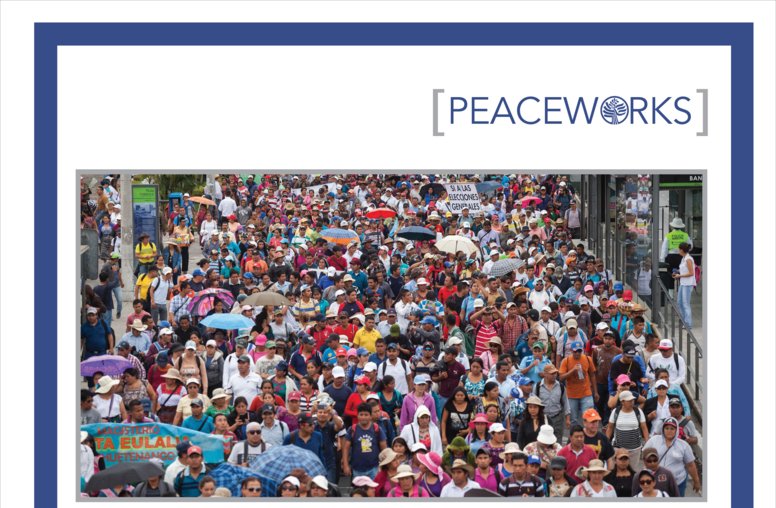
Negotiating Civil Resistance
Reviewing the literature on negotiation and civil resistance, this report examines the current divide between the two and digs deeper to identify the fundamental convergences. It builds on these findings to illustrate why negotiations and negotiation concepts are essential to the success of civil resistance campaigns. Using historical examples, it then examines the dynamics of negotiation in the context of these strategic domains.
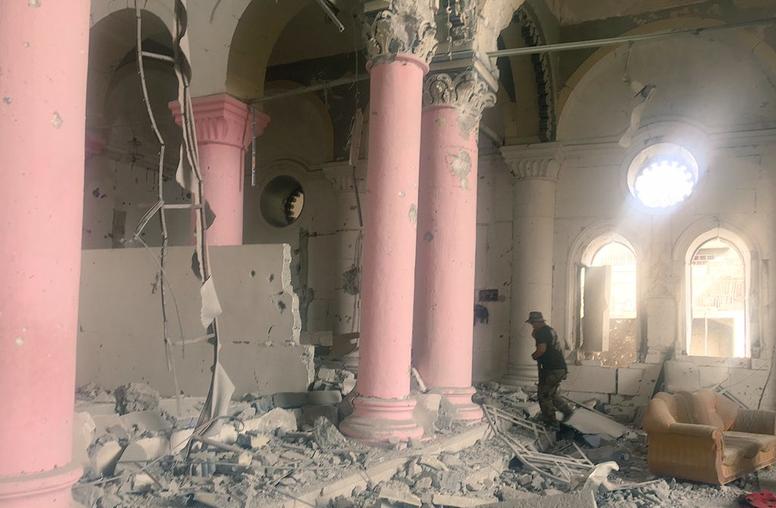
'U.S.-Light' in Iraq May Open Way for Russia, Iran
A failure by the international community to help rebuild Iraq will leave a vacuum that Russia, Iran or some new extremist group will seek to fill, warned the co-chairman of a working group in the Global Coalition to Defeat ISIS. In a recent discussion at the U.S. Institute of Peace, Ekkehard Brose agreed with the top U.S. State Department official on Iraq, Joseph Pennington, that Iraq must ultimately solve its own problems. But at this point, it can’t, Brose said.
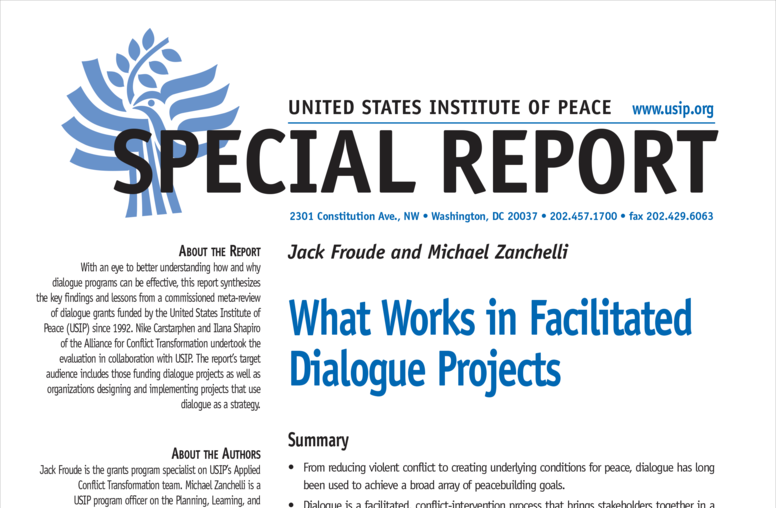
What Works in Facilitated Dialogue Projects
From reducing violent conflict to creating underlying conditions for peace, facilitated dialogue has long been used in pursuit of peacebuilding goals. In June 2015, the United States Institute of Peace commissioned a meta-review of its grant-funded dialogue projects since 1992. In an effort to better understand how and why dialogue programs can be effective in different contexts, to enhance future programmatic efforts, and to contribute to the evidence base for the benefit of the broader peacebuilding community, this report synthesizes the key findings from that evaluation.
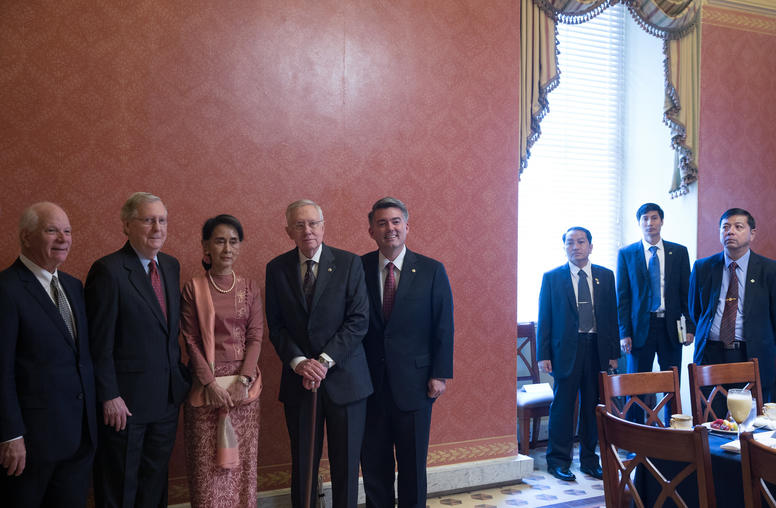
American Leadership in the Asia Pacific, Part 3: Promoting Democracy, Human Rights, and the Rule of Law
Derek Mitchell, senior advisor to USIP's Asia Center, testimony before the Senate Foreign Relations Subcommittee on East Asia, the Pacific, and International Cybersecurity Policy
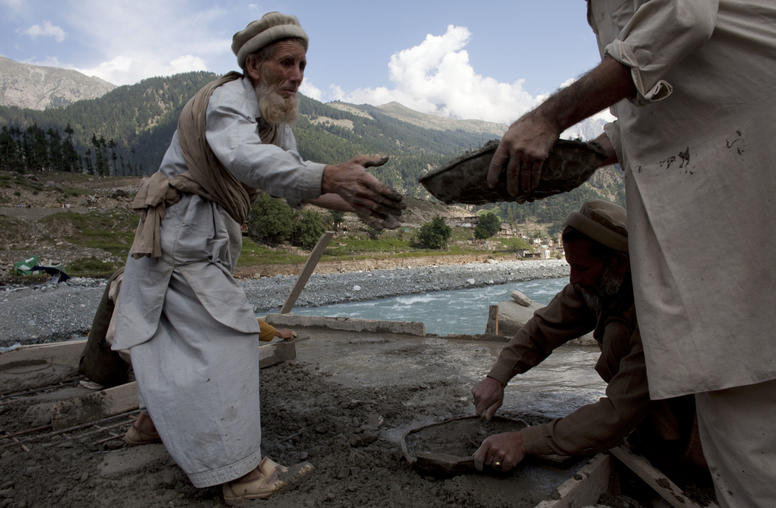
Can Pakistan Disaster-Prevention Tactic Apply to Politics Too?
In the past dozen years, Pakistan has been hit by eight earthquakes, including a magnitude 7.6 trembler that killed more than 86,000 people. The next quake in Pakistan is not a matter of if, but when. So the humanitarian community has focused on a game-changing idea known as resilience—taking actions...
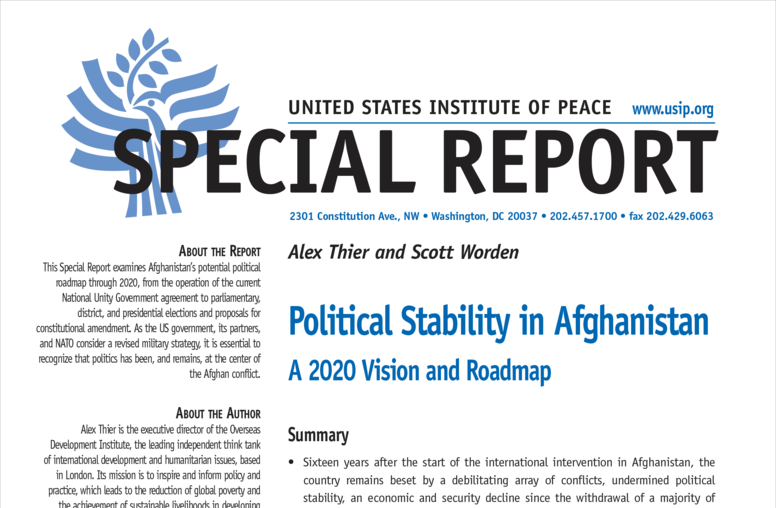
Political Stability in Afghanistan: A 2020 Vision and Roadmap
Sixteen years after the start of the international intervention in Afghanistan, the country remains beset by a debilitating array of conflicts, undermined political stability, an economic and security decline since the withdrawal of a majority of international forces, and a divided government since the 2014 elections. As the US government, its partners, and NATO consider...